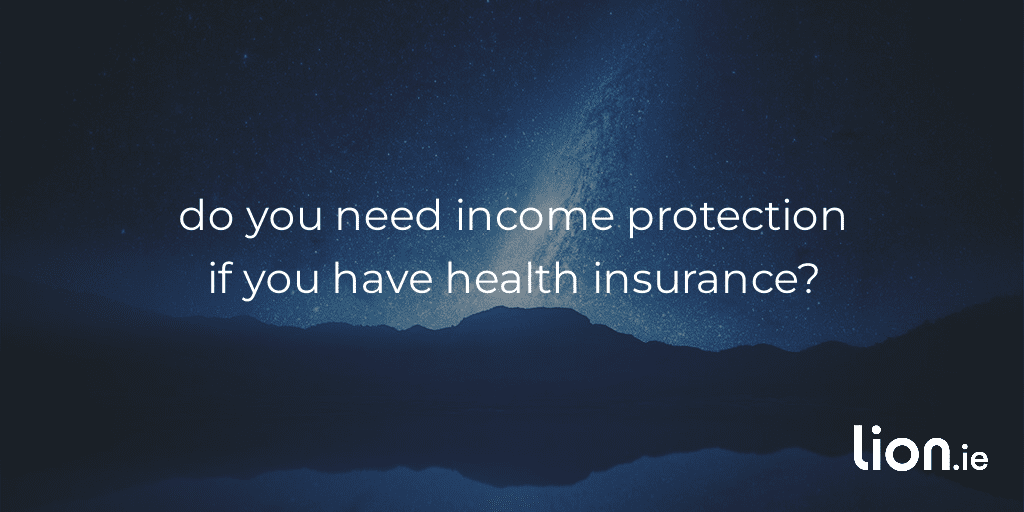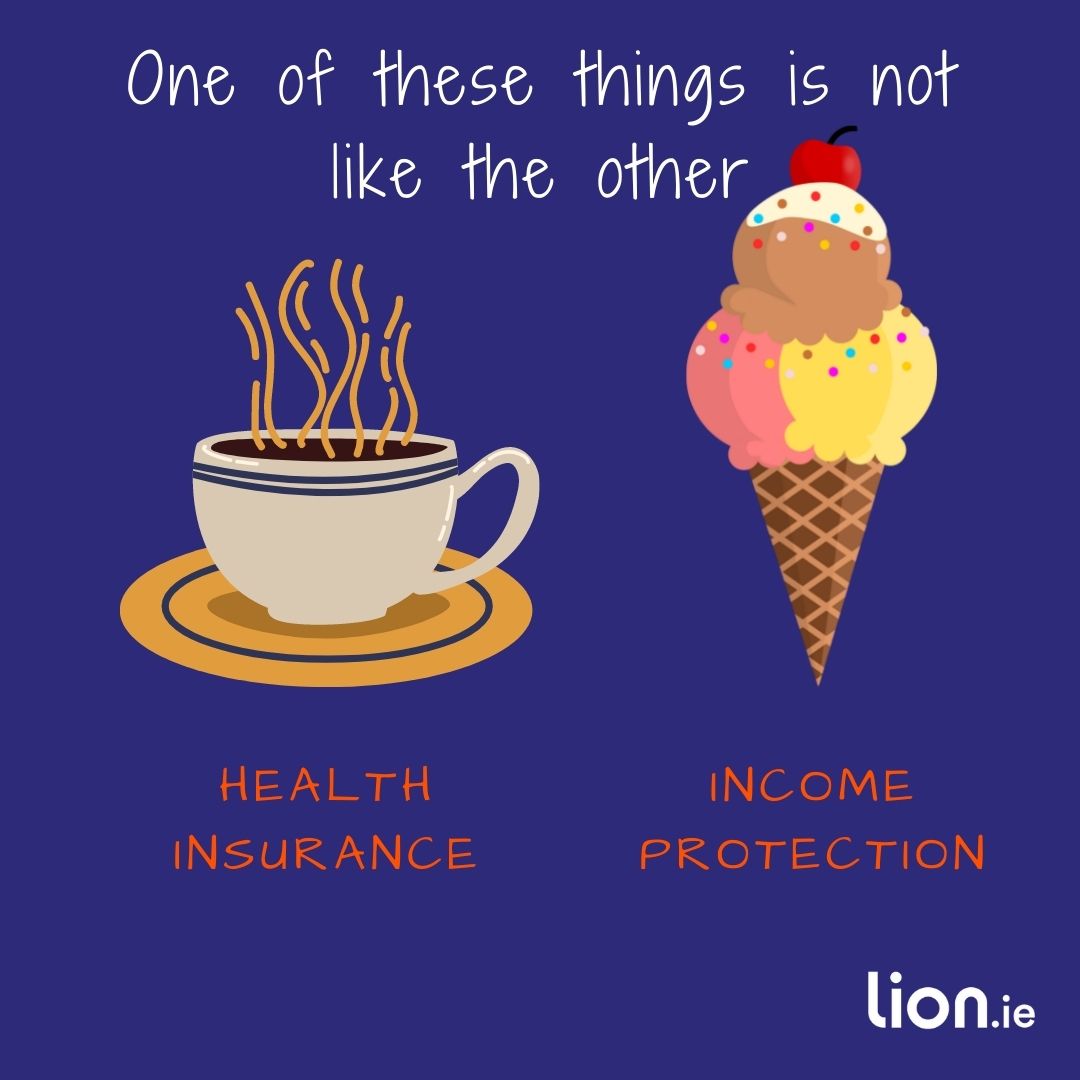How a Serious Illness Can Drain Your Life Savings (even if you have Health Insurance)

With so many different variations of insurance out there, I know it can get overwhelming.
Many of us think that we’re good to go once we have health insurance.
But health insurance has a few sneaky limitations that might not seem like such a big deal until you’re in the midst of a medical emergency.
What’s not covered by Health Insurance?
Yes, health insurance covers your medical bills and may even give you an upgraded room (no more sleeping next to Bob, who snores like a freight train while you’re trying to rest).
And don’t get me wrong, health insurance is a great safety net to have, but it can’t protect you against everything should your health hit a snag.
You’ll be out of work for a while if your health takes a battering.
So you can kiss goodbye to your savings as they disappear like icing sugar through a sieve.
And although medical bills may seem like your number one worry, life still goes on.
You’ll have to continue paying for the essentials – rent/mortgage, food, utilities etc.
But also the unexpected expenses that a serious illness can bring to your door, e.g. house modifications you may need depending on your illness, and even those pocket raiding hospital parking fees.
Your health insurance won’t cover any of these, so you’ll have to dig deep into your reserves or maybe even tap up your family.
If you’re thinking “savings, what savings”, this gets even more problematic.
So what can you do to protect future you?
There are two options – Serious Illness Cover and Income Protection – or if you’re feeling rather flush, you can hit up both.
Is Health Insurance the same as Serious Illness Cover?
Serious Illness Cover is insurance that pays out a lump sum (a splendid tax-free chunk of change) if you get one of the illnesses listed on your policy.
Now, different providers cover different illnesses, so you may have to do a teensy bit of research to find the best one (or just read this here blog)
How to Compare Serious Illness Cover in Ireland
For example, if Uncle Paddy, Auntie Marie and Granny Rosie all have had the same life-changing illness. It’s safe to say there’s something a little funky going on genetically, and you might want to make sure this condition is covered.
Catch my drift?
Unfortunately, if immediate family members (parent or sibling) also suffered that illness, the insurer will likely exclude that condition from your cover.
Now before you get all gung-ho with your cash in your hands, ready to press it into the sweaty palms of the first provider you come across – let’s give you another option:
Do you need Income Protection if you have Health Insurance?
Income Protection is the humdinger, the gold standard – the cat’s pyjamas of protection.

Income protection fuels your money train so it can keep on chugging through your bank account even if you can’t get to work.
Like magic, you’ll continue to receive up to 75% of your income should you be unable to work due to any sickness or injury until you can get back to your job.
However, there are a few little eligibility snags to keep in mind.
To even be eligible for this gem, you need to be employed for over 16 hours a week.
However, a little bonus here is that even the self-employed can access Income Protection (and if you’re self-employed and you don’t have it, well, you’re in my prayers)
As with most forms of insurance, Income Protection also weighs in the risk factor from your job. So Aaron, the accountant, will pay less than Charlie, the carpenter.
Now let’s get to the real nitty-gritty of this type of insurance and the factors that will increase or even lower your premium.
How long before an Income Protection claim pays out?
The deferred period is the waiting time between when you have to stop working due to illness or injury and when your Income payouts begin.
Most providers let you choose a deferred period of between 4 weeks and 52 weeks. So the longer you can defer your cash injection from your provider, the cheaper your premiums will be.
If your savings pot is nothing but dust bunnies, deferring this payment probably won’t be an option, but if you can save up a little money stash to keep you going should the worst happen, even better.
Think how long you could survive without an income after exhausting all other avenues (savings, investment, hawking jewellery and Panini albums, tapping up friends and family).
Most singletons think they could survive for 13 weeks. Most couples hit 26 weeks before

How does your occupation affect Income Protection?
The insurers calculate your premium based on the risk of a claim. Different occupations are given a risk level rating from class one to four.
Class 1 – office worker or professionals / no manual work
Class 2 – little manual work, think shop assistants who may have to move a box or two
Class 3 – teachers and nurses (lots of claims from these occupations hence the higher rating)
Class 4 – plumbers, carpenters.
Class one premiums will be a lot less than class four.
How does your health affect Income Protection?
Yup, another insurance that takes your medical history into account.
It sucks, I won’t lie.
Especially if you have just had unfortunate luck with your bodily health, these providers have to protect themselves somehow.
Unlike life insurance, where a serious medical condition will see your premiums skyrocket like Willy Wonka in his glass elevator, the insurer is likely to exclude that condition from your income protection policy.
Let’s say you have suffered mental health issues in the last five years (who hasn’t – thanks COVID) – the insurer will add a mental health exclusion to your policy. Or, if you had a right knee replacement, you will face a right knee exclusion.
They’re feckers for exclusions if you have had any symptoms in the last five years, but remember, the insurer will pay out for anything else that stops you from doing your job. From experience, it’s rarely the excluded condition that leads to a claim. It’s something like cancer or a heart attack that comes out of the blue.
Pre-existing conditions are what they are – some insurers are more lenient than others, and if you prefer, they can sometimes increase your premium instead of excluding the condition.
Is there an age limit for Income Protection?
Yes, 59 but don’t wait that long, please.
Insurance never seems like a priority when you’re young and healthy, but this is the best time to get on the insurance train.
The more grey hair you have (well, the more years you have, really), the higher your premium.
And as you get older, your potential for exclusions increase. Your body starts to strain and creak (back/neck/hip exclusion), the pounds are harder to keep off (higher premium due to BMI), and stress builds with kids and moving up the ranks at works (mental health exclusion).
As you can see, it makes sense to put the cover in place while you’re young, healthy and fancy-free.
You’ll lock in a low premium that’s fixed regardless of what happens health-wise in the future.
Think of it like the aforementioned health insurance. Once you hit 35, your health insurance premium increase by 2% per year so this pushes people into taking it out before then.
Income protection premiums increase by around 7% every year you put it off!
But if you take it out when you’re 34, you’ll pay the same premium at 64 as a 34-year-old!
Does smoking affect Income Protection?
And as for our puffing buddies, those little nicotine sticks are already putting you at a few extra-curricular health risks, and your provider will bump your premiums.
Granted, they’re not as severe as if you were trying for life insurance because smoking reduces your life expectancy more than it puts you out of work.
Over to you
Health insurance is important, and we wouldn’t be without it – we’ve had a few minor scares with the kids, and the health insurance has paid its way.
But income protection and serious illness cover are chalk to health insurance’s cheese.

I bet you can already see the benefits of scoring at least one of these additional insurances.
I hope you feel tip-top right now, but you never know what the future has in store for you.
Preparing for advance for these issues can lift that otherwise crippling stress that might hit you further down the line.
It’s your future – it’s up to you to protect future you.
If you don’t, who will?
And you don’t have to pay mad money either. I can tailor a plan to fit your budget.
Please complete this questionnaire if you’d like some help, and I’ll be right back.
Thanks for reading this far.
Chat soon
Nick






